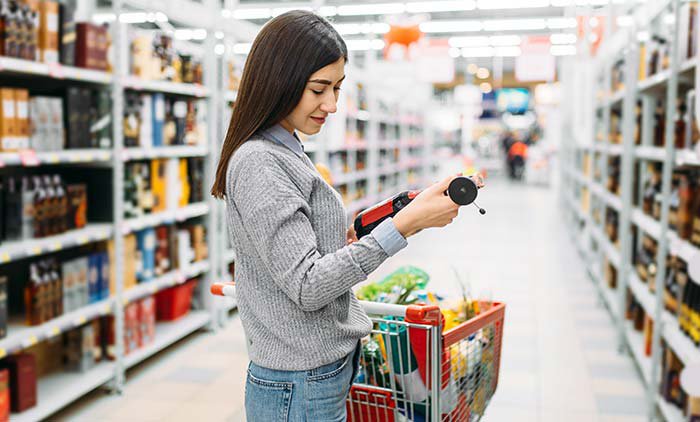Zero alcohol drinks

In Australia we’re seeing a rise in the popularity of drinks with little or no alcohol content that mimic the flavour, style and packaging of traditional alcoholic drinks.
The growing interest in these products has caught the attention of the media, who are questioning how zero alcohol drinks might fit into ‘sober curious’ and ‘mindful drinking’ trends.1
Early analysis suggests zero alcohol drinks can be beneficial for people who are looking to cut back their drinking. However, potential benefits need to be balanced with concerns being raised by public health advocates, including that:
- Some adults might be drinking zero alcohol products in addition to their current alcohol consumption, rather than as a substitute.
- Zero alcohol products are being marketed as appropriate in situations where alcohol isn’t appropriate, such as when swimming, driving or operating machinery – which works to normalise use.
- Zero alcohol drinks are also being used to increase awareness and acceptability of alcohol products and brands among young people.
- This increased exposure to zero alcohol products being consumed across an extended range of activities might confuse children who may think alcohol is being drunk more frequently than it is, overall working to further normalise alcohol use.
- Products can be sold as zero-alcohol drinks when they contain less than 0.5% alcohol by volume (ABV). Because they can contain small amounts of alcohol, they should also be avoided if you are pregnant or planning a pregnancy.
- Young people who consume zero alcohol drinks might have an increased likelihood of drinking alcohol, and starting to drink it at an earlier age.2
What are zero alcohol drinks?
‘Zero alcohol drinks’ is essentially marketing terminology for ‘products mimicking alcohol’
Impact on children and young people
Young people are already exposed to alcohol advertising daily – on billboards, on public transport and on tv (especially during sporting events).
What can we do to prevent and reduce harm?
Although the impact of zero alcohol drinks is not well known yet, we can still take action to reduce the possibility of harm
- Bucher T, Pirinen M. Australians are embracing ‘mindful drinking’ — and the alcohol industry is also getting sober curious: The Conversation; 2021 [23.03.2022].
- Miller M, Pettigrew S, Wright CJC. Zero-alcohol beverages: Harm-minimisation tool or gateway drink? Drug and Alcohol Review [Internet]. 2021 [07.07.2022]; 41(3).
- Barnott-Clement D, Hough C. Non-alcoholic beer, wine and drink sales soar as quality improves. ABC Rural. 2021.
- Australian Institute of Health and Welfare. National Drug Strategy Household Survey 2019. Canberra: AIHW; 2020.
- Burnett C. The ethics of zero alcohol. BrewsNews. 2021 September 21.
- The ABAC Scheme Limited. ABAC Adjudication Panel Determination No 207/20. 2021.
- The ABAC Scheme Limited. ABAC Adjudication Panel Determination No 178/21. 2021.
- Heineken. Campaigns - That moment you couldn't have a beer. Now you can [14.04.2022].
- Kuntsche E, Le Mével L, Zucker RA. What do preschoolers know about alcohol? Evidence from the electronic Appropriate Beverage Task (eABT). Addictive Behaviors. 2016;61:47-52.
- Voogt C, Beusink M, Kleinjan M, Otten R, Engels R, Smit K, et al. Alcohol-related cognitions in children (aged 2–10) and how they are shaped by parental alcohol use: A systematic review. Drug and Alcohol Dependence. 2017;177:277-90.
- Fossey E. Identification of alcohol by smell among young children: an objective measure of early learning in the home. Drug Alcohol Depend. 1993;34(1):29-35.
- Voogt C, Smit K, Kleinjan M, Otten R, Scheffers T, Kuntsche E. From Age 4 to 8, Children Become Increasingly Aware About Normative Situations for Adults to Consume Alcohol. Alcohol and Alcoholism. 2019;55(1):104-11.
- Miller P. How big alcohol is trying to fool us into thinking drinking is safer than it really is 2019 [cited 2021 March 16].
- Martino FP, Miller PG, Coomber K, Hancock L, Kypri K. Analysis of alcohol industry submissions against marketing regulation. PLoS One. 2017;12(1):e0170366.
- Burnett C. Retail Drinks slams NT minimum alcohol price report. BrewsNews. 2020.
- Movendi International. Australia: Alcohol Lobby Pushes to Weaken Public Health (Again) 2021
- Diageo acquires majority shareholding in Seedlip, the world’s first distilled non-alcoholic spirit [press release]. Online2019.